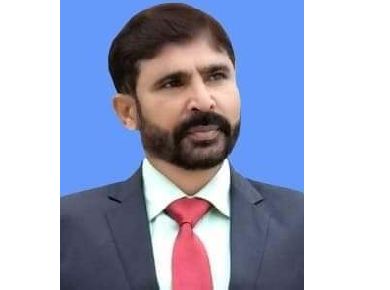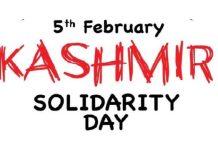Dr. Muhammad Akram Zaheer
After Israel announced that it was at war with Hamas, several countries expressed concern about the escalating conflict and called on both sides to cease hostilities.Russia was one of them, although some heads of state accused Moscow of aiding Hamas’ initial attack on Israel, saying it would be useful to divert attention from the disaster in Ukraine. Israel itself has dismissed these accusations as a pure conspiracy, and although Russia could benefit from the conflict, it will only do so as a mediator, not as an aggressor.
It is true that the world has turned its attention from Ukraine to Israel, and it is also true that Russia welcomes the amnesty.The Kremlin has spent countless resources on its war effort and cannot afford to lose.A loss would deprive Moscow of the international standing it so desperately seeks, would likely spark domestic discontent and lead to exactly what Russia sought to avoid: NATO forces near its borders.These events have led many to believe that Russia will use this moment to launch another attack.But the opportunity is not as good as it seems.Russia is deeply involved in Ukraine and is working to stimulate economic growth in the face of labor shortages and stifling sanctions for aiding or abetting either side of the war between Israel and Hamas.Even if this is not the case, Russia has an interest in maintaining good relations with both sides.The worse the war becomes, the more difficult it becomes for Russia to do either.
Moscow realizes that the war in Ukraine will end one way or another.He realizes that Ukraine is not his only means of expanding his influence.He realizes that under the current circumstances he needs to engage politically and economically as much as he can with countries with which he has good relations.Israel and the Palestinian territories are precisely such countries, and Russia continues to maintain dialogue with both accordingly.In fact, Russia’s relations with those regions are historical.After Israel reoriented its foreign policy toward the West during the Cold War, the Soviet Union supplied weapons to the Palestine Liberation Organization and trained its fighters in Soviet military educational institutions.They have kept in touch ever since.Its support for the Palestinian territories has strengthened its standing among other Middle Eastern countries, many of which have significantly increased their trade with Russia since the start of Western sanctions.
These countries include Iran and Algeria, which also need Russia’s economic support in these difficult economic times.What’s more, Islam is the second most popular religion in Russia, and many of its followers are in the North Caucasus, whose support the Kremlin needs to maintain stability in its southern fringes.Finally, there are about 2,000 Russian citizens throughout the official territory of the Palestinian Authority, including 1,200 in the Gaza Strip.This explains why President Vladimir Putin called for the establishment of a Palestinian state with East Jerusalem as its capital.However, Russia continues to maintain its relations with Israel.About 80,000 Jews live in Russia, and the Russian Jewish diaspora in Israel is also large.Israel was also one of the favorite destinations for Russians who fled the country after the invasion of Ukraine.
In 2022, more than 37,000 people fled to Israel from Russia, and in 2023, before immigration laws were tightened, the number of people leaving Russia for Israel rose significantly.In terms of foreign policy, Russia views Israel, a nuclear power, as a stabilizing factor in the Middle East and appreciates the fact that it abstains from the Western sanctions regime.Regarding the war with Hamas, Putin said that Israel is under unprecedented attack and has the right to defend its citizens.But perhaps the most convincing evidence of Russia’s lack of involvement in the war between Israel and Hamas is that Russia has not used this war to its advantage so far.No new attack has been carried out, and there is no indication that the army is on alert in case anything dramatic happens.
The only thing he did was try to position himself as a mediator in the conflict.In addition to calling for a ceasefire, Putin stressed the importance of diplomatic efforts to bring about a comprehensive, just and lasting peace in the Middle East, noting that any ground operation in Gaza would have serious consequences and civilian deaths. Russia knows that the Middle East is a much higher priority for the United States than Ukraine, and that Washington may be particularly interested in having someone else mediate so as not to be drawn into another regional conflict.Unlike Russia, the United States does not have much support in the Palestinian territories anyway.The Kremlin is already trying to figure out how to use its position to solve its problems, and there are already rumors of a possible dialogue between the United States and Russia.
Last week, a working meeting of the five nuclear powers was held in New York with the participation of Russian representatives.For Russia, the benefits of mediation are twofold: it helps Moscow break out of its (relative) international isolation by working with partners it would not otherwise have done so, and it potentially helps prevent the war from escalating further or involving other states in the region.Russia enjoys lucrative economic, infrastructure and logistics partnerships.The real question is whether Moscow has enough time to seize this opportunity, given all the problems it is dealing with.The benefits are significant and inaction carries an opportunity cost.If the war expands to include Russia’s allies, it will be very difficult for Moscow to balance its forces in the Middle East, and Russia will lose momentum.

















